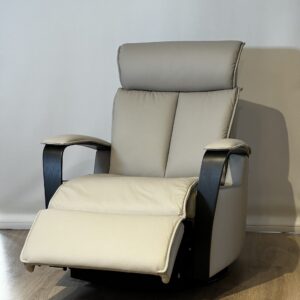Both men and women require 7 to 9 hours of sleep per night. Despite the fact that both sexes might be kept awake at night by a variety of factors such as personal stress, work commitments, and medical issues, studies reveal that women have more sleep fragmentation and poorer sleep quality than males. According to statistics, women are more likely to nap, and they suffer from sleep deprivation as a result.
Women may require more sleep than males for a variety of reasons. Women are 40% more prone than men to suffer from sleeplessness. Women are roughly twice as likely as men to experience anxiety and depression, the conditions that are closely linked to insomnia. Insomniacs have trouble sleeping or staying asleep on a regular basis, and they are sleepy during the day.
The role of hormones in women’s sleep is higher than that of men. Hormones are in charge of our sleep-wake cycles. These hormones have an impact on how we feel about ourselves, including how fatigued we are, how alert we are, and how hungry we are. Women’s circadian rhythms are impacted by hormonal changes every month and throughout their lives, resulting in a greater demand for sleep.
Menstruation and Sleep
In women with premenstrual symptoms or unpleasant menstrual cramps, poor sleep quality throughout the premenstrual phase and during menstruation is typical. Due to pains, migraines, and bloating, one-third of women have problems sleeping during menstruation. They have more daytime sleepiness, tiredness, and fatigue.
Pregnancy and Sleep
Women who are pregnant may have restless legs syndrome, which makes it difficult to fall asleep. They’re also more prone to suffer from sleep disturbances such as anxiety, depression, sleep apnea and discomfort. The frequent need to urinate, painful breasts, and a developing tummy are just a few of the factors that might keep you from getting a decent night’s sleep. These sleep problems can last far into the postpartum period.
Postpartum Sleep
After the delivery, your hormones undergo yet another major adjustment, making sleep a horrible challenge. Postpartum sleep difficulties can be deadly when combined with caring for your baby and learning new skills such as breastfeeding. Lack of sleep may lead you to greater risks of postpartum depression, and you need to seek professional help from a doctor for that. It might be the toughest phase of any woman who experiences motherhood.
Menopause and Sleep
According to researchers, up to 85% of women suffer from hot flashes during menopause10. Women wake up sweating in the middle of the night when this happens, interrupting their sleep. During menopause, women’s risk of sleep apnea rises as well11. Even if the person does not wake up, this sleep condition generates breathing pauses that can disrupt sleep quality. As a result, women who suffer from sleep apnea may wake up feeling drowsy and sleepy.
Women’s sleep problems are frequent, and they can change or intensify over time, but there is hope for better sleep. Begin by improving your sleeping habits. Limit your coffee, alcohol, and nicotine intake, and avoid naps during the day. Exercise on a regular basis and stick to a regular sleep routine. Create a cool, dark, and quiet environment in your bedroom. It is recommended to remove the clutter and electronic gadgets from our sleeping spot. Try using standard mattresses from top-notch bed company like Restonic to improve your sleep quality. It is a leading bed store in the UAE.













